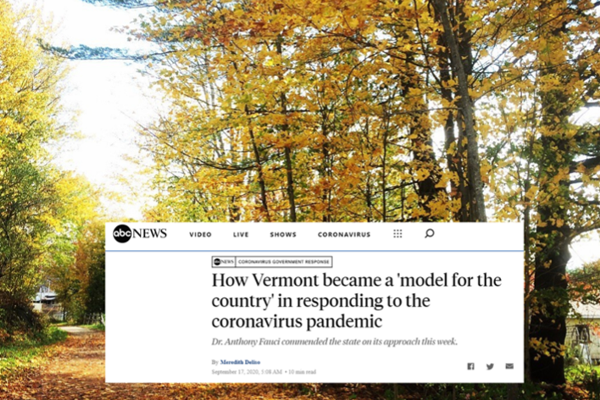

Democracy is a Public Health Issue: Tools to Support Nonpartisan Voter Access
As trusted messengers, how can public health professionals use their role to protect both health and democracy?
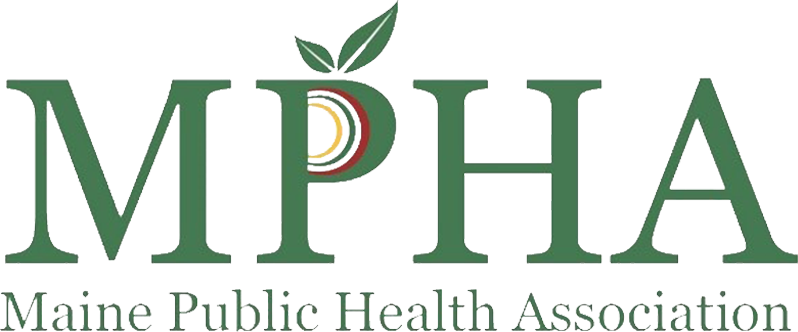
Course Information
- Audience: All public health professionals working in nonprofits, healthcare, educational institutions, government and private sector
- Format: Webinar
- Date/Time: July 17, 2025 12:00 PM – 1:00 PM ET.
- Price: Free
- Length: 1 hour
- Credential(s) eligible for contact hours: Sponsored by New England Public Health Training Center (NEPHTC), a designated provider of continuing education contact hours (CECH) in health education by the National Commission for Health Education Credentialing, Inc. This program is designated for Certified Health Education Specialists (CHES) and/or Master Certified Health Education Specialists (MCHES) to receive up to 1 total Category I continuing education contact hours. Maximum advanced-level continuing education contact hours are 1. Provider ID: Event ID: .If you are not seeking a CHES/MCHES contact hours, if you complete the post-test and evaluation, you will receive a Certificate of Completion. The Certificate will include the length of the course.
- Competencies: Communication Skills
- Learning Level: Awareness
- Companion Trainings: None
- Supplemental materials:Slides and follow-up email with any links mentioned during presentation
- Pre-requisites: None
About this Webinar
Voting shapes the policies that impact every social determinant of health—from housing and education to clean air and access to care. In this session, you’ll learn how public health professionals can support nonpartisan voter access efforts that align with their mission and reach the most impacted communities. You'll leave with tools, real-world examples, and practical strategies you can apply right away.
What you'll learn
- Understand the link between voting and public health outcomes.
- Identify legally sound, nonpartisan ways to support voter access.
- See real-life examples of voter registration integrated across communities.
- Walk away with ready-to-use tools and ideas for your own work.
-
Subject Matter Expert
 Marcos Damian Noyola,
Deputy Director of Partnerships at Vot-ER
Marcos Damian Noyola,
Deputy Director of Partnerships at Vot-ER
Marcos Damian Noyola (he/him) is the Deputy Director of Partnerships at Vot-ER. With a background in public health and systems design, Marcos supports healthcare institutions and community-based organizations in integrating nonpartisan voter access into their programs. His work centers equity, storytelling, and sustainable infrastructure to build civic health.
Enrollment and Contact Hours
Select the Enroll button below to register for the course. If you have any trouble accessing the course, contact support@nephtc.org.
Acknowledgement: This project is supported by the Health Resources and Services Administration (HRSA) of the U.S. Department of Health and Human Services (HHS) as part of award 2 UB6HP31685‐05‐00 “Public Health Training Centers.” The contents are those of the author(s) and do not necessarily represent the official views of, nor an endorsement, by HRSA, HHS or the U.S. Government.
This training was supported by the Health Resources and Services Administration (HRSA) of the U.S. Department of Health and Human Services (HHS) as part of a financial assistance award totaling $400,000 with 100% funded by HRSA/HHS and
0% funded by nongovernment source(s). The contents are those of the author(s) and do not necessarily represent the official views of, nor an endorsement, by HRSA/HHS, or the U.S. Government.
* Yale School of Public Health, Office of Public Health Practice, a New England Public Health Training Center partner, is a designated provider of continuing education contact hours (CECH) in health education by the National Commission for Health Education Credentialing, Inc. All CHES credit inquiries are managed by YSPH
Registration
Select the Enroll Me button below to register for this recording. If you have any trouble accessing the recording, contact support@nephtc.org.
Acknowledgement: This project is supported by the Health Resources and Services Administration (HRSA) of the U.S. Department of Health and Human Services (HHS) as part of award 2 UB6HP31685‐05‐00 “Public Health Training Centers.” The contents are those of the author(s) and do not necessarily represent the official views of, nor an endorsement, by HRSA, HHS or the U.S. Government.
Project REACH: Improving Research Dissemination in Maine and Beyond
"Did you know that, according to published research, we could save five times more lives by implementing existing findings rather than pursuing new discoveries or modernizing our healthcare system?"

Register
Course Information
- Audience: All public health professionals working in nonprofits, healthcare, educational institutions, government and private sector
- Format: Webinar
- Date/Time: Thursday, July 11th, 12pm – 1pm ET
- Price: Free
- Length: 1 hour
- Credential(s) eligible for contact hours: Sponsored by New England Public Health Training Center (NEPHTC), a designated provider of continuing education contact hours (CECH) in health education by the National Commission for Health Education Credentialing, Inc. This program is designated for Certified Health Education Specialists (CHES) and/or Master Certified Health Education Specialists (MCHES) to receive up to 1 total Category I continuing education contact hours. Maximum advanced-level continuing education contact hours are 1. Provider ID: 1131137 Event ID: TBA.If you are not seeking a CHES/MCHES contact hours, if you complete the post-test and evaluation, you will receive a Certificate of Completion. The Certificate will include the length of the course.
- Competencies: Leadership and Systems Thinking Skills
- Learning Level: Awareness
- Companion Trainings: None
- Supplemental materials:Powerpoint and follow-up emails with any links mentioned during presentation
- Pre-requisites: None
About this Webinar
Join us to learn about Project REACH, a free resource for sharing information about community and health care interventions that could work in your community and/or health care setting. We have created easy-to- understand summaries of different studies and provided links to the full study materials if you want more in-depth information.
What you'll learn
After attending this webinar, participants will be able to:
- Understand the importance of planning and ensuring research is disseminated in multiple ways to reach end users and increase the use of evidence to improve health outcomes.
- Promote awareness of a new project called REACH: Research Evidence for Action for Community Health, which is testing strategies to enhance research dissemination.
- Learn about the methods REACH uses to foster collaborations and increase stakeholder participation in the REACH process.
- Discover opportunities to get involved: provide your input and ideas to help promote the REACH project.
Subject Matter Experts

Lisbeth Balligan

Carrie Sullivan
Ms. Balligan brings over 15 years of experience in research and public health to provide overall programmatic support to investigators and project staff. Most of her work focuses on T4 research including clinical implementation and population health integration of research findings, including dissemination. Ms. Balligan coordinates activities and facilitates the development and maintenance of partnerships and research collaborations across clinical and community settings Maine by championing a community-engaged approach to research.
In her role on the Northern New England Clinical and Translational Research Network, Ms. Balligan directs the development of regional community engagement research councils across Maine to allow for meaningful participation in evaluation and research among community members and partners, clinical investigators and researchers. In Western Maine, Ms. Balligan recently co-facilitated a project to elevate community voices about the impact of Adverse Childhood Experiences by developing a public awareness campaign in Western Maine. Ms. Balligan is serving as co- investigator on a Patient-Centered Outcomes Research Institute (PCORI) grant to build capacity for research dissemination and translation into practice. The study aims to create a robust, sustainable infrastructure for disseminating evidence to organizations and leaders to address the needs of patients and communities in rural Maine.
Carolyn (Carrie) Sullivan is a member of the Research Navigation team at the MaineHealth Institute for Research. Her work focuses primarily on promoting health research in rural communities, particularly Midcoast Maine, as part of the Northern New England Clinical and Translational Research (NNE-CTR) Network.,
Carrie has a bachelor’s degree in Community Health Education from University of Wisconsin and a Master’s in Public Health Administration from School of Public Health at the University of Minnesota. Her passion and training are in working at the community level to translate research into practice in ways the produce demonstrable improvements in public health. Carrie’s previously worked at the University of Wisconsin School of Medicine and Public Health, that National Cancer Institute, and the Rollins School of Public Health at Emory University before joining Maine Medical Research Institute.
Registration
Select the Enroll Me button below to register for this recording. If you have any trouble accessing the recording, contact support@nephtc.org.
Acknowledgement: This project is supported by the Health Resources and Services Administration (HRSA) of the U.S. Department of Health and Human Services (HHS) as part of award 2 UB6HP31685‐05‐00 “Public Health Training Centers.” The contents are those of the author(s) and do not necessarily represent the official views of, nor an endorsement, by HRSA, HHS or the U.S. Government.

Best Practices in Public Health Communication to Promote Equity and Inclusion
How can we use health literacy principles to improve the inclusivity and efficacy of public health communications?

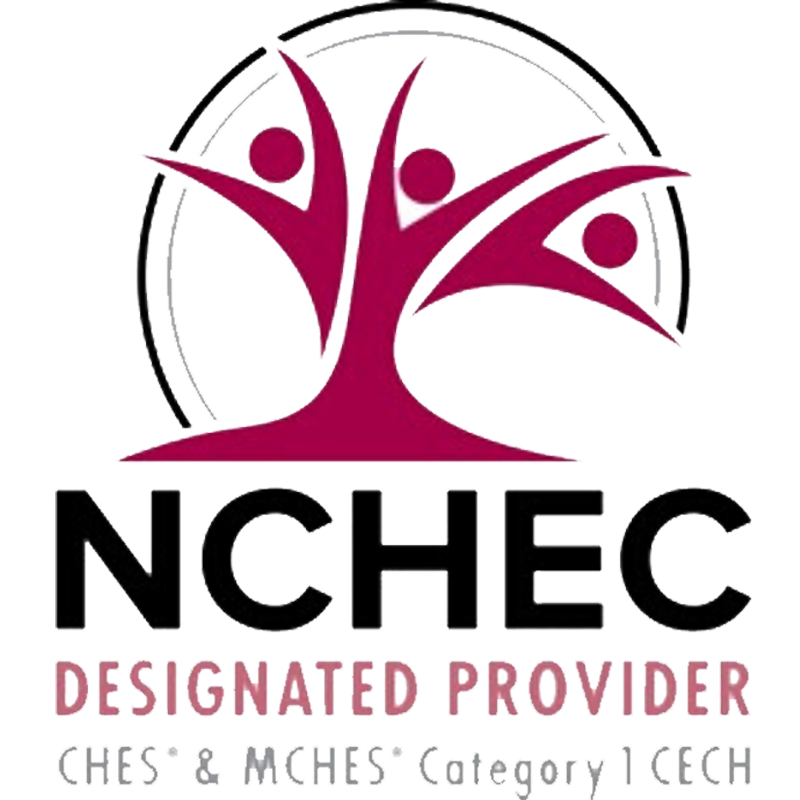
Register
Course Information
- Audience: Public Health Professionals, Community Health Workers
- Format: Webinar
- Date/Time: Wednesday, September 29th 2021 12:15 PM – 2:00 PM EST.
- Price: Free
- Length: 1.75 hours
- Credential(s) eligible for contact hours: Sponsored by New England Public Health Training Center (NEPHTC), a designated provider of continuing education contact hours (CECH) in health education by the National Commission for Health Education Credentialing, Inc. This program is designated for Certified Health Education Specialists (CHES) and/or Master Certified Health Education Specialists (MCHES) to receive up to 1.75 total Category I continuing education contact hours. Maximum advanced-level continuing education contact hours are 1. Provider ID: 1131137 Event ID: PM1133137_09292021.
If you are not seeking a CHES/MCHES contact hours, if you complete the post-test and evaluation, you will receive a Certificate of Completion. The Certificate will include the length of the course.
- Competencies: Health Equity Skills
- Learning Level: Awareness
- Companion Trainings: None
- Supplemental materials:None
- Pre-requisites: None
About this Webinar
This webinar will use didactic and workshop techniques to inform participants of best practices in public health communication to promote equity and inclusion. An overview of health literacy will be discussed, as well as how it connects to health equity. We will also speak about health literacy efforts in our community, and review how health literacy can be improved using digital literacy, cross-cultural communication, and non-biased language.
What you'll learn
At the end of the recording, participants will be able to:
- Describe the landscape of health literacy and choose inclusive language
- Develop public health messaging that incorporates numerous aspects of literacy that impacts health
- Identify communication strategies to promote the use of inclusive and non-stigmatizing language as part of public health communication
Subject Matter Experts

Jennifer Ceide, MPH
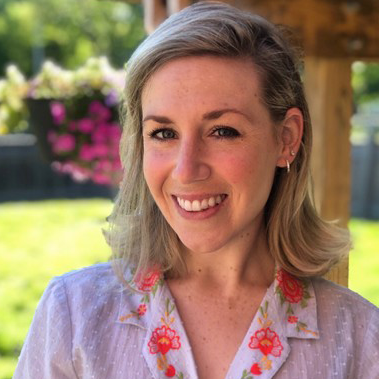
Liz Scharnetzki, Ph.D.
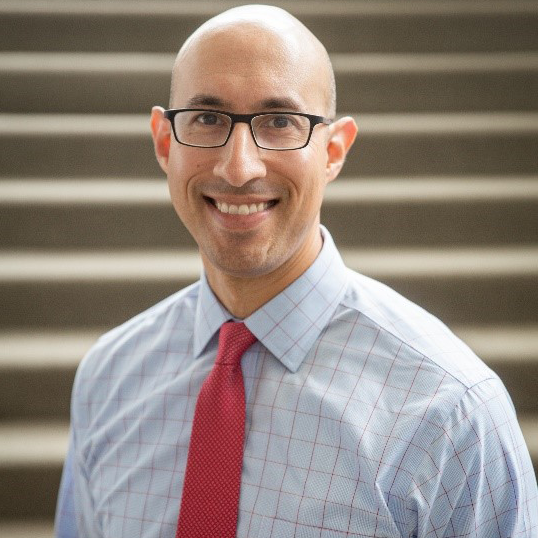
Leo Waterston, M.A.

Orion Tucker
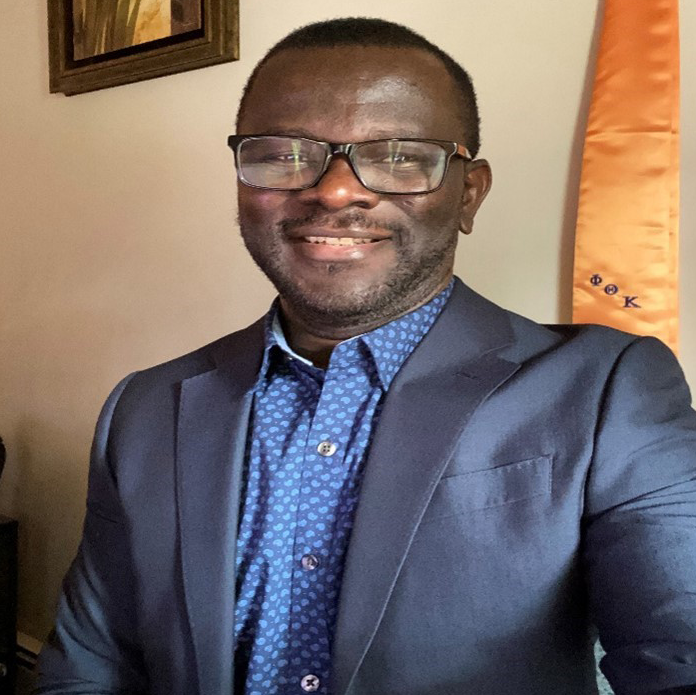
Inza Ouattara

Andrew Solomon
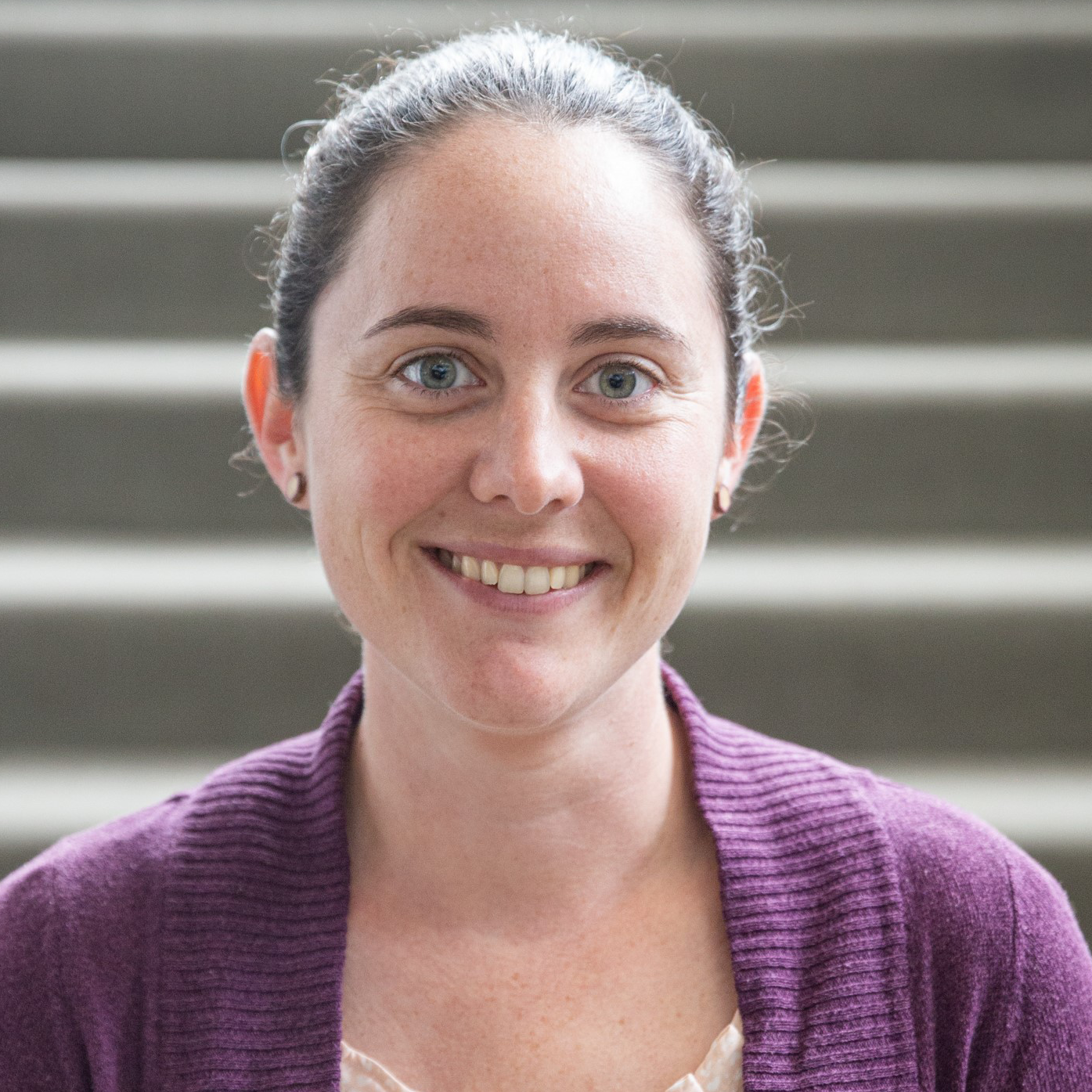
Kerri Barton
Jennifer Ceide has worked in the field of public health since 2009, with a strong emphasis on health education and communication. Her focus on developing educational programs for patients with Asthma afforded her the opportunity to present her work to clinicians of the Shanghai Children Medical Center in Shanghai, China. Her leadership in guiding the implementation of tobacco cessation systems at Jamaica Hospital led to the Gold Star Recognition in the NYC Tobacco-Free Hospital Campaign Certification from the New York City Department of Health. She currently serves as Primary Faculty for the Master of Public Health program at the University of New England in Maine. Jennifer recently developed a Health Education Design course that has been described as challenging, practical, and enjoyable by MPH students. Jennifer is Haitian-American and was born and raised in Brooklyn, NY. She attributes much of her success to being raised in a richly diverse community and obtaining both undergraduate and graduate degrees from institutions in Jamaica-Queens, NY and New Orleans, LA, two culturally-vibrant US cities.
Liz Scharnetzki, Ph.D., is a Staff Scientist at the Center for Outcomes Research and Evaluation (CORE) at Maine Medical Center Research Institute (MMCRI). Dr. Scharnetzki completed her PhD in Experimental Social Psychology at the University of Vermont. Her research interests lie in understanding how stigma and identity threat impact the delivery and receipt of health care. Before joining CORE, Dr. Scharnetzki worked at Vermont’s Agency of Human Services, developing policy research projects aimed at promoting social capital within Vermont’s criminal justice system. Dr. Scharnetzki’s other prior positions include serving as a lecturer at universities and colleges in both California and Vermont, and working as a Research Technician at one of the NIH Building Infrastructure Leading to Diversity (BUILD) Initiative sites. Dr. Scharnetzki currently serves on the National Lung Cancer Roundtable Stigma Committee and co-leads MMCRI’s Diversity, Equity, and Inclusion Workgroup.
Leo Waterston, M.A., is the Program Director for the Center for Outcomes Research and Evaluation (CORE) at Maine Medical Center Research Institute, where he is responsible for the Center’s operations, strategic planning, and management of staff and resources to support CORE’s mission. Leo also serves as Project Director for the Maine Lung Cancer Coalition, a grant-funded lung cancer prevention and screening program with partners throughout the state of Maine. Leo has more than 15 years of experience working in health care research, management, and public health. He earned a B.A. in Psychology from Clark University and a M.A. in Clinical Psychology from Fordham University. He currently serves on the National Lung Cancer Roundtable and Maine's Impact Cancer Network. Orion Tucker (he/him) has a Bachelor of Arts in Political Science and Psychology from Temple University in Philadelphia, PA, where he completed his senior capstone in LGBTQ+ Politics. Orion, from his lived experiences, brings a passion for improving diversity, equity, and inclusion efforts in order to enact meaningful change for the LGBTQ+ community. He brings this drive to his work every day as Health Equity Alliance’s LGBTQ+ Program Manager. Over the years, Orion has provided education, training, consulting, and curriculum design to community-based agencies, healthcare organizations, colleges and universities, businesses, and others to expand competency and affirming experiences for LGBTQ+ identifying individuals in the various communities he has served. Orion is also a Certified Personal Trainer who values behavior change and meeting people where they are.
Orion Tucker (he/him) has a Bachelor of Arts in Political Science and Psychology from Temple University in Philadelphia, PA, where he completed his senior capstone in LGBTQ+ Politics. Orion, from his lived experiences, brings a passion for improving diversity, equity, and inclusion efforts in order to enact meaningful change for the LGBTQ+ community. He brings this drive to his work every day as Health Equity Alliance’s LGBTQ+ Program Manager. Over the years, Orion has provided education, training, consulting, and curriculum design to community-based agencies, healthcare organizations, colleges and universities, businesses, and others to expand competency and affirming experiences for LGBTQ+ identifying individuals in the various communities he has served. Orion is also a Certified Personal Trainer who values behavior change and meeting people where they are.
With a Doctorate in Educational Leadership, a Master of Public Policy and Management and as a Licensed Social Worker, Dr. Ouattara currently works as the State of Maine Refugee Health Coordinator. Dr. Ouattara has 21 years of experience working with refugees and immigrants in Africa and in the United States. In his current position, Dr. Ouattara oversees the domestic medical screening of refugees, asylees, and other ORR eligible populations in Maine. He is also an Adjunct Professor at the Southern New Hampshire University teaching Sociocultural Perspective.
Andrew P. Solomon, MPH, is the Senior Program Manager for the federally funded Northeast Telehealth Resource Center (www.NETRC.org), a member of the National Consortium of Telehealth Resource Centers and a project of Medical Care Development, Inc. (www.MCD.org). Andrew has worked with over 600 health care provider organizations, government agencies, and others to design, implement, and optimize telehealth programs. NETRC’s scope of services cover the “A to Z” of telehealth program development, including legal and regulatory considerations, quality and equity best practices, training resources, and sustainability. Andrew’s experiences also include developing and managing a population health program at a Community Health Center in Rhode Island. There, he implemented projects such as text-messaging programs to improve patient engagement and a transportation program to assist patients in getting to appointments and other health-related services. Andrew holds a Master of Public Health from Boston University.
Kerri earned her MPH at Boston University School of Public Health in 2011. She has since worked for the Massachusetts Department of Public Health as an infectious disease epidemiologist, at Maine Medical Center as a Rural Research Navigator, and now works for the City of Portland Public Health Division as the Interim Program Coordinator for Harm Reduction Services in the Needle Exchange Program.
Registration
Select the Enroll Me button below to register for this recording. If you have any trouble accessing the recording, contact support@nephtc.org.
Acknowledgement: This project is/was supported by the Health Resources and Services Administration (HRSA) of the U.S. Department of Health and Human Services (HHS) under grant number UB6HP31685 “Regional Public Health Training Center Program.” This information or content and conclusions are those of the author and should not be construed as the official position or policy of, nor should any endorsements be inferred by HRSA, HHS or the U.S. Government.

Creating Public Health Messages & Materials using Plain Language
Are your public health materials and messages clear and actionable?

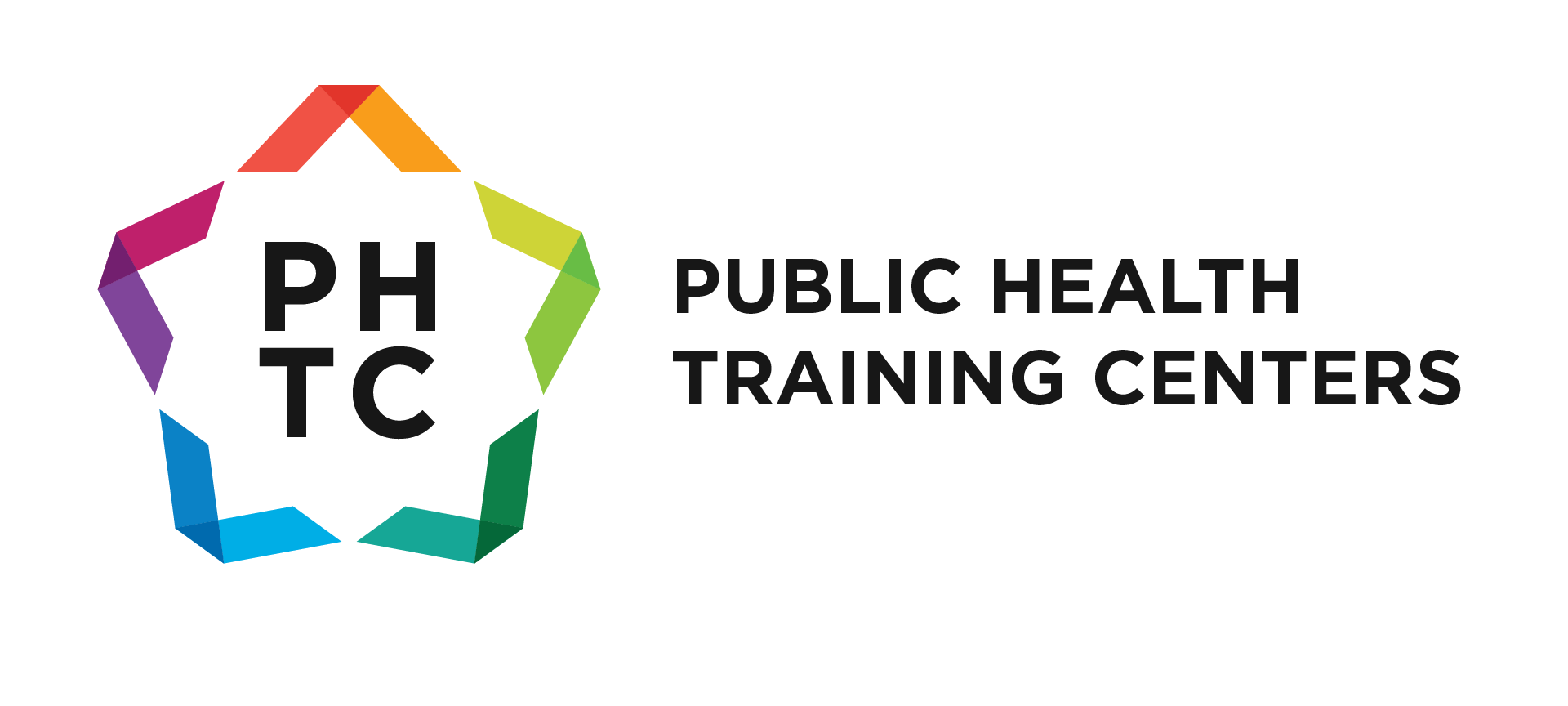

Register
Course Information
- Audience: Public health professionals and project managers, non-profit organizations
- Format: Online Webinar
- Date/Time:
Monday, July 16, 2018
12:00-1:00 PM - Price: Free
- Length: 1 Webinar Session, 1 hour
- Credential(s) eligible for contact hours: Certificate of completion
- Competencies: Communication Skills
- Learning Level: Awareness
- Companion Trainings Numbers in Health: Make the Meaning Clear
- Supplemental materials: PowerPoint
- Pre-requisites: None
About this Webinar
The Webinar will focus on developing participants' skills to communicate complex health information in ways people can understand. Clear and simple health messages & materials help all audiences and members of your community (especially those with limited literacy skills) read, understand, and act on health information. Participants will take an audience-centered approach to assessment and creating materials and messages that are readable, actionable and culturally relevant. We will pay close attention to what plain language writing and design look like and how to apply plain language writing and design principles in practice. Although not required, participants may work on a health communication project of their own during the applied activities.
What you'll learn
At the end of the course, participants will be able to:
- Recognize health literacy, language and culture as potential barriers to communicating public health messages.
- Use health literacy tools and techniques to assess the readability and actionability of materials & messages.
- Apply plain language principles to public health materials & messages to enhance ease of use for all readers.
Subject Matter Expert

Sabrina Kurtz-Rossi, M.Ed.
Assistant Professor, Director
Tufts Health Literacy Leadership Institute
Registration and Contact Hours
Select the Enroll button below to register for this webinar. If you have any trouble accessing the webinar, contact trainingmanager@nephtc.org.
The Certificate of Completion will include the length of the webinar. Generally 50 – 60 minutes is equivalent to 1 contact hour. Contact hours may be applicable towards continuing education requirements for certain credentials. Check with your credentialing body to verify if the topic meets its continuing education requirements.
Creating Your Marketing Pitch
Cut through the clutter with concise and compelling messaging

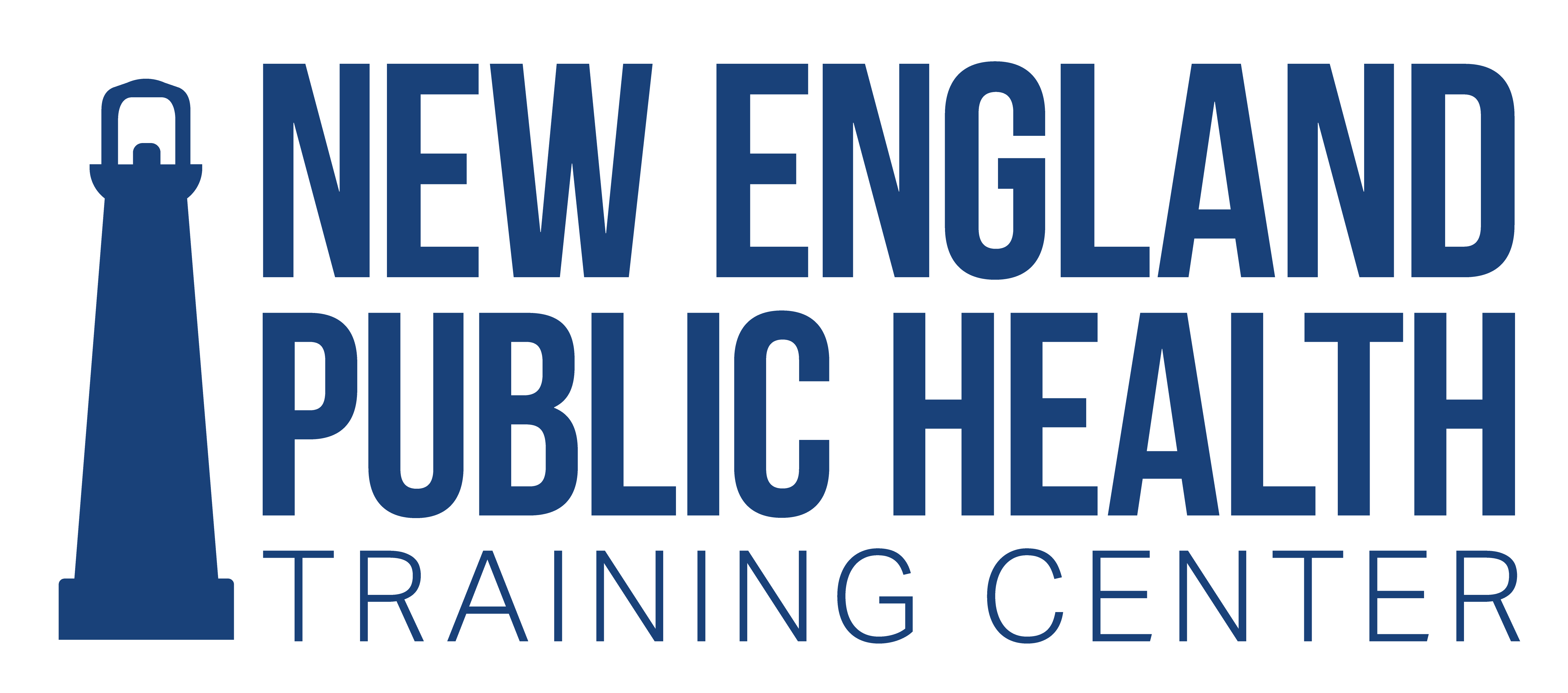
Register
Course Information
- Audience: Public health Managers and leaders
- Format: Webinar
- Date/Time: March 9th, 2019 2:00 - 1:00 PM EST
- Price: Free
- Length: 1 hour
- Credential(s) eligible for contact hours: Certificate of completion
- Competencies: Communication Skills
- Learning Level: Awareness
- Companion Trainings Marketing Public Health
- Supplemental materials: Session PowerPoint
- Pre-requisites: None
About this Webinar
Creating Your Marketing Pitch is one-hour webinar for public health managers and leaders. An “express” version of the Creating Your Marketing Pitch half day workshop, this webinar draws from recent public health case studies to offer practical, actionable advice on creating concise, compelling messaging for programs and projects.
What you'll learn
At the end of the course, participants will be able to:
- Name the four characteristics of effective messaging
- Describe how to formulate a clear, concise, compelling elevator pitch for a program or project
- Differentiate between the main message and the 4 – 6 supporting points.
- Assess the value and nature of audience-level messaging
Subject Matter Expert

Michele Levy
Marketing Consultant
ML Brand Strategy Consulting
Registration and Contact Hours
Select the Enroll button below to register for this webinar. If you have any trouble accessing the webinar, contact trainingmanager@nephtc.org.
The Certificate of Completion will include the length of the webinar. Generally 50 – 60 minutes is equivalent to 1 contact hour. Contact hours may be applicable towards continuing education requirements for certain credentials. Check with your credentialing body to verify if the topic meets its continuing education requirements.
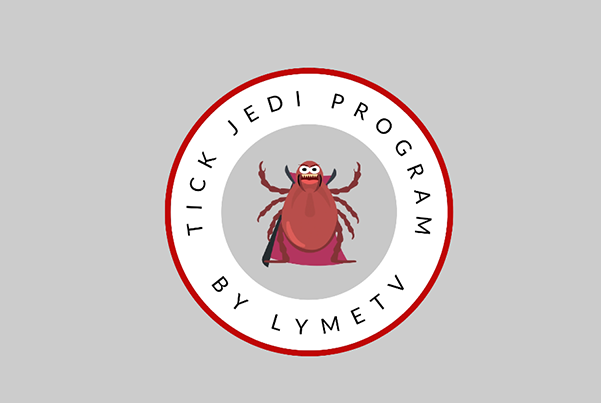
Idea to Legislation: A Step-by-Step Roadmap to Enacting Practical Health Policy
How can the public health workforce mobilize a coalition of partners to advance equal opportunity in health education?


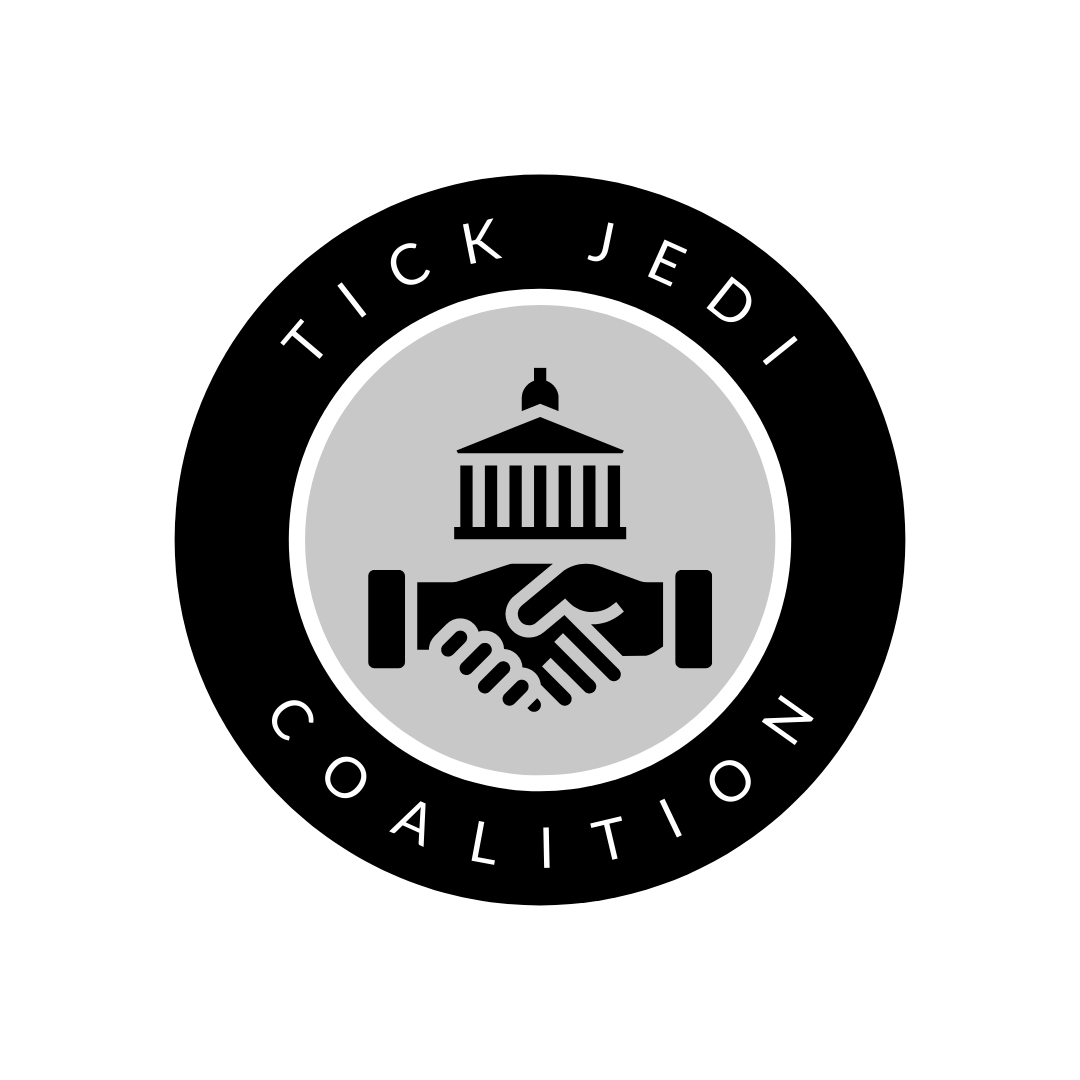
Register
Course Information
- Audience: Community Health Worker, Public Health Students & Professionals
- Format: Webinar
- Date/Time: Thursday, November 2nd, 2023 12:00 PM – 1:00 PM ET.
- Price: Free
- Length: 1 hour
- Credential(s) eligible for contact hours: Sponsored by New England Public Health Training Center (NEPHTC), a designated provider of continuing education contact hours (CECH) in health education by the National Commission for Health Education Credentialing, Inc. This program is designated for Certified Health Education Specialists (CHES) and/or Master Certified Health Education Specialists (MCHES) to receive up to 1 total Category I continuing education contact hours. Maximum advanced-level continuing education contact hours are 1. Provider ID: 1131137 Event ID: PM1131137_ILASSREPHP. If you are not seeking a CHES/MCHES contact hours, if you complete the post-test and evaluation, you will receive a Certificate of Completion. The Certificate will include the length of the course.
- Competencies: Policy Development and Programming Skills
- Learning Level: Performance
- Companion Trainings: None
- Supplemental materials:None
- Pre-requisites: None
- Technical Requirements: This webinar is hosted on the Zoom platform. Please refer to the Zoom System Specifications to ensure your system meets the minimum requirements for connecting.
About this Webinar
Follow the journey of LymeTV’s Tick JEDITM youth tick education program – from public health educational concept to successful legislative advocacy effort. The narrative serves as a model for scaling community activism to achieve meaningful policy adjustments for a broader population.
What you'll learn
At the end of the recording, participants will be able to:
- Generate a reasonable policy intervention plan for a public health challenge
- Implement a localized coalition-building strategy to advance a common legislative goal
- Execute a campaign to shepherd an idea from grass-roots movement to established law
Subject Matter Experts

Adina Bercowicz

Megan Bradshaw
Adina is the Executive Director of LymeTV, a tick-borne disease prevention organization in Maine, as well as the president of the board for the Tick JEDI Coalition, LymeTV’s 501(c)4 advocacy-focused sister organization. The Tick JEDI Coalition is a group of stakeholder organizations, which has championed educational reform for tick safety, achieving legislative milestones in multiple states. Adina served on the Department of Defense's FY19 Congressionally Directed Medical Research Programs, Tick-Borne Disease Research Program as a scientific panel Consumer Reviewer. She is currently pursuing a Master of Public Health with a focus in Epidemiology at the University of New England & is a Care for the Underserved Pathway (CUP) AHEC Scholar, an Honors Distinction Program focusing on healthcare in rural & medically-underserved areas. Adina previously worked emergency response logistics in post-earthquake Haiti, & in leadership roles designing sustainability programs that advanced education & health equity for families in Kolkata, India.
Meghan Bradshaw serves as the Director of Advocacy for LymeTV, a tick-borne disease prevention organization in Maine, and she is also a co-founder and co-director of the Tick JEDI Coalition. Meghan strategizes with board members, partner organizations, legislators, and other key stakeholders to advance the organization’s high impact advocacy goals, including the first Tick JEDI Bill in New Jersey (S264). Meghan was a patient representative on the HHS 2022 Tick-Borne Disease Working Group Clinical Presentation and Pathogenesis Subcommittee. She is currently pursuing a Master of Public Health at the University of North Carolina at Chapel Hill Gillings School of Global Public Health.
Registration
Select the Enroll Me button below to register for this recording. If you have any trouble accessing the recording, contact support@nephtc.org.
Acknowledgement: This project is supported by the Health Resources and Services Administration (HRSA) of the U.S. Department of Health and Human Services (HHS) as part of award 2 UB6HP31685‐05‐00 “Public Health Training Centers.” The contents are those of the author(s) and do not necessarily represent the official views of, nor an endorsement, by HRSA, HHS or the U.S. Government.
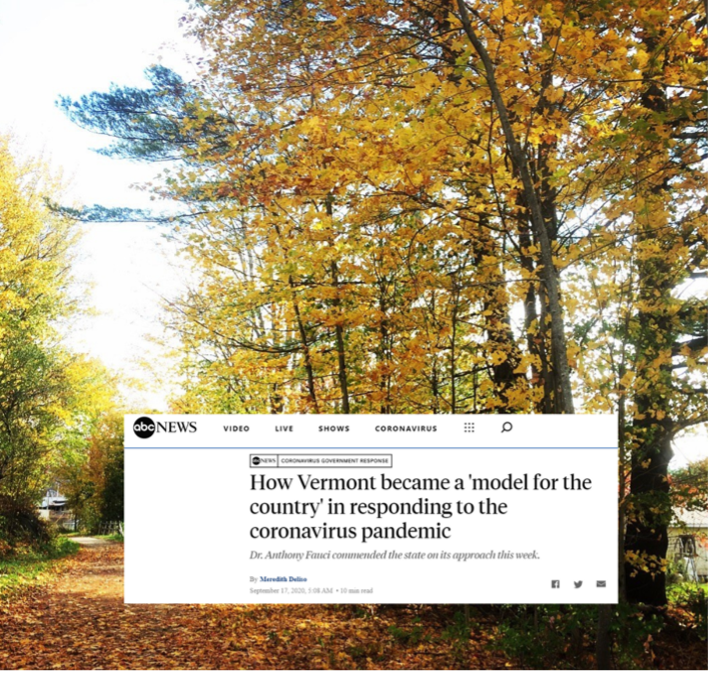
The Vermont Way: Communicating through science and clear public health messaging
Have you wondered how Vermont’s response to the pandemic has kept the number of infections by most measures the lowest in the nation?



Register
Course Information
- Audience: Public health practitioners, health care providers, social workers, public health advocates, leaders at community-based organizations, and anyone else who is curious about social marketing and Vermont’s relative success in managing the COVID-19 pandemic.
- Format: Online Webinar
- Date/Time: May 5th, 2021
12:00 - 1:30 PM EST - Price: Free
- Length: 1.5 hours
- Credential(s) eligible for contact hours: Sponsored by New England Public Health Training Center (NEPHTC), a designated provider of continuing education contact hours (CECH) in health education by the National Commission for Health Education Credentialing, Inc. This program is designated for Certified Health Education Specialists (CHES) and/or Master Certified Health Education Specialists (MCHES) to receive up to 1 total Category I continuing education contact hours. Maximum advanced-level continuing education contact hours are 1. Provider ID: 1131137 Event ID: PM1131137_05052021 If you are not seeking CHES/MCHES contact hours, if you complete the evaluation, you will receive a Certificate of Completion. The Certificate will include the length of the course.
- Competencies: Communication Skills
- Learning Level: Awareness and Performance
- Companion Trainings: None
- Supplemental materials:Session PowerPoint
- Pre-requisites None
About this Webinar
In February of 2020 Vermont began preparing for what became the COVID-19 pandemic. From the start, the Governor and the people supporting him, most notably the Commissioner at the Vermont Department of Health, relied on science and the data at hand to inform the public. During this session, you will learn the principles of effective marketing in public health and how Vermont applied the principles in its messaging.
What you'll learn
At the end of the webinar, participants will be able to:
- Summarize the basic components of a public health communications strategy
- Outline what worked well with respect to the Vermont Department of Health communication approach to the COVID-19 pandemic
- Recognize some common pitfalls to avoid in public health communications
- Apply principles of effective communications strategy by analyzing a current campaign
Subject Matter Experts

Rebecca Brookes
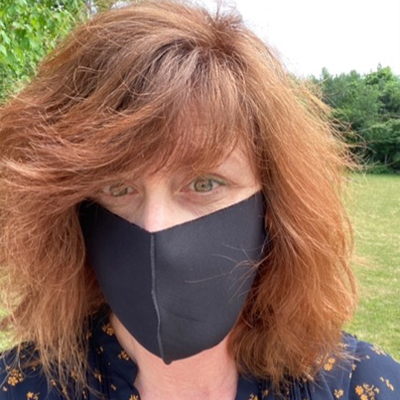
Shari Levine
Over the past 40 years, Rebecca has worked nationally and internationally in many areas of public health marketing and behavior change, including the Tobacco Control Programs for New York State and Vermont. She’s worked for the Ford Foundation, the US Embassy in the Dominican Republic, Planned Parenthood International Federation and Planned Parenthood Federation of America (where she was national Director of Social Marketing), and trained national grantees for Substance Abuse and Mental Health Services Administration (SAMHSA) to embed behavior change into programs. Rebecca was on staff at VDH from 2012-2017, where she worked on the Medicaid Tobacco Benefit Expansion and Promotion Initiative and was a co-author on the subsequent article “A Framework for Effective Promotion of a Medicaid Tobacco Cessation Benefit,” published in Health Promotion Practice in July 2020. She has been on the editorial board for Social Marketing Quarterly since 2013. She currently holds a legislative appointment to the Vermont Substance Misuse Prevention Oversight and Advisory Council, which advises the Governor and legislature on policy for tobacco, alcohol, marijuana, and prescription drugs. Her profile as a social marketer in public health will be the first inclusion of social marketing in the upcoming third edition of 101+ Careers In Public Health published by Columbia University.
Shari Levine has extensive professional experience in communications and in writing for various public and professional audiences. She has a demonstrated history of working in the health, wellness and fitness industry. Shari’s experience includes consulting with nonprofit organizations, use of program evaluation and also editing, journalism, and creative writing. She is known as a strong media and communication professional. Shari earned her Master of Public Health (MPH) degree focused on Health Education and Behavioral Sciences from Emory University. Presently, she is the Information Director for the Vermont Department of Health, Division of Maternal and Child Health. She has served on the VDH COVID 19 Crisis and Emergency Response (CERC) team over this past year, in which data, assessment, message design, and evaluation were used to inform Vermonters of the risks and the nature of COVID 19.
Registration
Select the Enroll Me button below to register for this webinar. If you have any trouble accessing the webinar, contact support@nephtc.org.
Acknowledgement: This project is/was supported by the Health Resources and Services Administration (HRSA) of the U.S. Department of Health and Human Services (HHS) under grant number UB6HP31685 “Regional Public Health Training Center Program.” This information or content and conclusions are those of the author and should not be construed as the official position or policy of, nor should any endorsements be inferred by HRSA, HHS or the U.S. Government.
* Yale School of Public Health, Office of Public Health Practice, a New England Public Health Training Center partner, is a designated provider of continuing education contact hours (CECH) in health education by the National Commission for Health Education Credentialing, Inc. All CHES credit inquiries are managed by YSPH

Towards a Weight Inclusive Public Health - Part 1: Understanding Weight Stigma
Reconsidering "obesity" and its "prevention"
How does weight stigma and anti-fat bias intersect with public health practice?
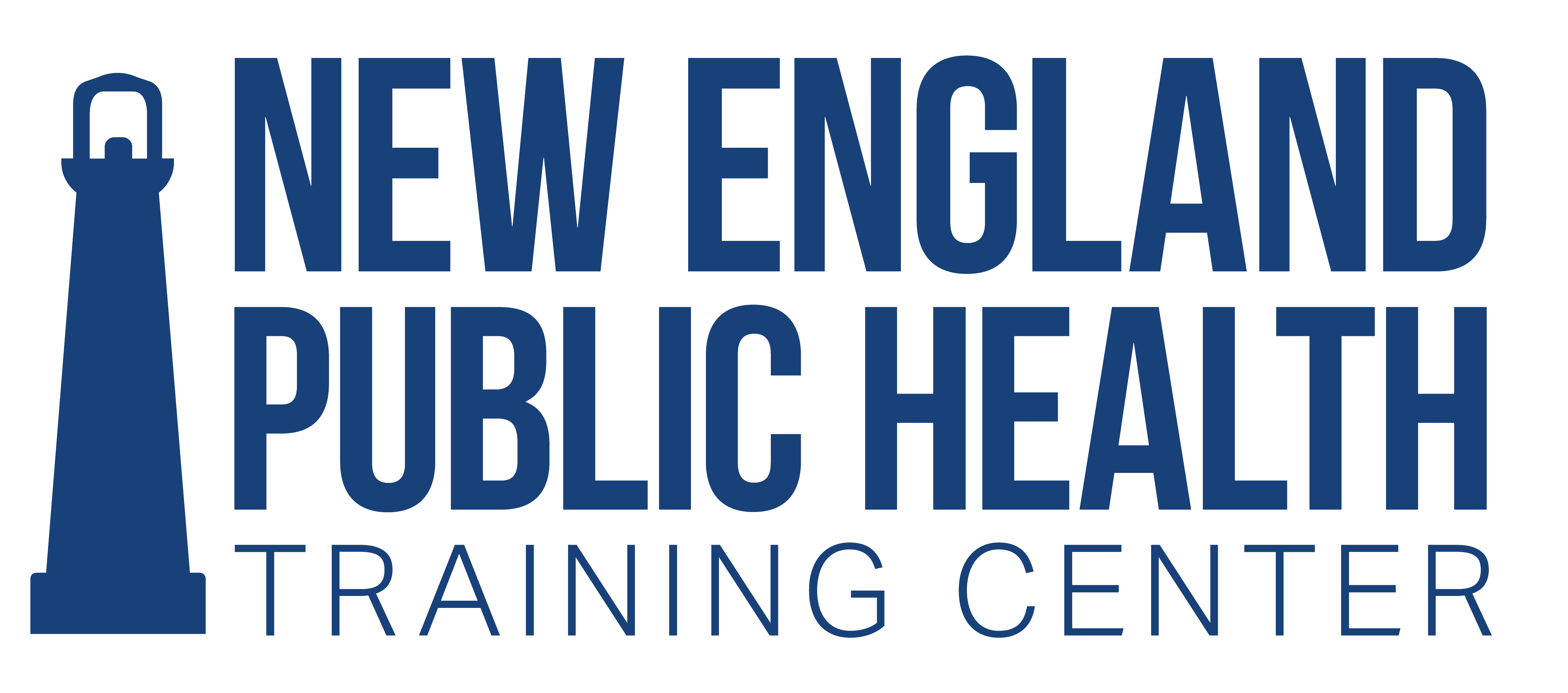
Course Information
- Audience: Public Health workers, researchers, healthcare providers
- Format: Self-paced
- Price: Free
- Length: 1 hour
- Credential(s) eligible for contact hours: 1 hour
Sponsored by New England Public Health Training Center (NEPHTC), a designated provider of continuing education contact hours (CECH) in health education by the National Commission for Health Education Credentialing, Inc. This program is designated for Certified Health Education Specialists (CHES) and/or Master Certified Health Education Specialists (MCHES) to receive up to 1. total Category I continuing education contact hours. Maximum advanced-level continuing education contact hours are 0. Provider ID: 1131137 Event ID: PM1131137_03252023.
If you are not seeking a CHES/MCHES contact hours, if you complete the post-test and evaluation, you will receive a Certificate of Completion. The Certificate will include the length of the course. - Competencies: Health Equity
- Learning Level: Awareness
- Supplemental materials: None
- Pre-requisites: None
About this course
A growing body of research implicates exposure to weight stigma in a variety of negative health outcomes (independent of BMI), including all-cause mortality and suicidality. Fat liberation activists have identified public health and healthcare systems as sources of weight stigma for more than 50 years. To disrupt the cycles of discrimination and poor health that jeopardize fat people’s well-being, Public health needs a paradigm shift from "obesity prevention" to understanding weight stigma as a social and structural determinant.What you'll learn
After completing the training, you will be able to...
- Define weight stigma as the devaluation of fatness and fat people
- Describe how weight stigma functions as a social determinant of health
- Explain how weight stigma mediates relationships between fatness and poor health outcomes
- Analyze how the construct of “obesity” naturalizes the health consequences of weight stigma as integral to fat embodiment
- Illustrate the weight stigmatizing consequences of “obesity prevention” as a public health priority
Subject Matter Experts
 |
 |
|
|---|---|---|
| Marquisele (Mikey) Mercedes | Monica Kriete, MPH | |
Presidential Fellow, Brown University School of Public Health, Co-host, Unsolicited: Fatties Talk Back |
Writer, speaker, and consultant |
Enrollment and Contact Hours
Note there are two different options for enrolling in this course highlighted in the table below.
The Certificate of Completion will include the length of the module. Generally 50 – 60 minutes is equivalent to 1 contact hour. Contact hours may be applicable towards continuing education requirements for certain credentials. Check with your credentialing body to verify if the topic meets its continuing education requirements.
Sponsored by NEPHTC & YSPH, a designated provider of continuing education contact hours (CECH) in health education by the National Commission for Health Education Credentialing, Inc. This program is designated for Certified Health Education Specialists (CHES) and/or Master Certified Health Education Specialists (MCHES) to receive up to1total Category I continuing education contact hours. Maximum advanced-level continuing education contact hours are0. Provider ID #1131137.
Having trouble accessing the course? Contact support@nephtc.org
Acknowledgement: This project is supported by the Health Resources and Services Administration (HRSA) of the U.S. Department of Health and Human Services (HHS) as part of award 2 UB6HP31685‐05‐00 “Public Health Training Centers.” The contents are those of the author(s) and do not necessarily represent the official views of, nor an endorsement, by HRSA, HHS or the U.S. Government.

Webinar 1: Where Persuasion Fits in Health Conversations: Influencing Clients and Communities
How can you persuade clients and community groups about a health behavior or concept?




Register
Course Information
- Audience: Community health centers, community health workers, school staff, public health, non-profit organizations, mental health staff
- Format: Online Webinar
- Date/Time:
Tuesday, April 3, 2018
12:00-1:00 PMWebinar 2: Communicating to Different Personality Styles, Monday, May 7, 12:00-1:00pm
Webinar 3: Personal Presence When Making the Case for a Program, Tuesday, June 12, 12:00-1:00pm.
- Price: Free
- Length: 3 Webinar Sessions, each 1 hour
- Credential(s) eligible for contact hours: Sponsored by New England Public Health Training Center (NEPHTC), a designated provider of continuing education contact hours (CECH) in health education by the National Commission for Health Education Credentialing, Inc. This program is designated for Certified Health Education Specialists (CHES) and/or Master Certified Health Education Specialists (MCHES) to receive up to 1 total Category I continuing education contact hours. Maximum advanced-level continuing education contact hours are 0. Provider ID: 1131137 Event ID: SS1131137_WPFIHC1.
If you are not seeking CHES/MCHES contact hours, if you complete the evaluation, you will receive a Certificate of Completion. The Certificate will include the length of the course. - Competencies: Communication Skills
- Learning Level: Awareness
- Supplemental materials: PowerPoint
- Pre-requisites: None
About this Webinar
The series of three Webinars will provide a progressive look at the art of persuasion in a health conversation. As individuals, we form habits of communication and methods to attempt to influence others. The exploration will include examining beliefs and interpretations of information that impact how we communicate with our clients about their health. It becomes a challenge when evidence-based information is not convincing. This series will look at methods to navigate through emerging and competing influences that impact how patients send and receive information. By engaging others in meaningful conversations about their health we have a chance to influence.
What you'll learn
At the end of the course, participants will be able to:
- Name two communication mistakes to avoid when talking with clients or communities about behavior change.
- Identify two methods to apply to a health conversation to create a meaningful experience for the client or community.
- Differentiate between ineffective and effective persuasion strategies in health discussions.
Subject Matter Expert

Katherine Galasso
MS, CIF and Member of
the International Motivational Interviewing Network of Trainers, (MINT)
Primary Instructor
Katherine Galasso Consulting, LLC
Registration and Contact Hours
Select the Enroll button below to register for this webinar. If you have any trouble accessing the webinar, contact trainingmanager@nephtc.org.
The Certificate of Completion will include the length of the webinar. Generally 50 – 60 minutes is equivalent to 1 contact hour. Contact hours may be applicable towards continuing education requirements for certain credentials. Check with your credentialing body to verify if the topic meets its continuing education requirements.

Webinar 2: Where Persuasion Fits in Health Conversations: Communicating to Different Personality Styles
How can personality styles explain why we get along more easily with some people than others?




Register
Course Information
- Audience: Community health centers, community health workers, school staff, public health, non-profit organizations, mental health staff
- Format: Online Webinar
- Date/Time:
Monday, May 7, 2018
12:00-1:00 PMWebinar 3: Personal Presence When Making the Case for a Program, Tuesday, June 12, 12:00-1:00pm.
- Price: Free
- Length: 3 Webinar Sessions, each 1 hour
- Credential(s) eligible for contact hours: Sponsored by New England Public Health Training Center (NEPHTC), a designated provider of continuing education contact hours (CECH) in health education by the National Commission for Health Education Credentialing, Inc. This program is designated for Certified Health Education Specialists (CHES) and/or Master Certified Health Education Specialists (MCHES) to receive up to 1 total Category I continuing education contact hours. Maximum advanced-level continuing education contact hours are 0. Provider ID: 1131137 Event ID: SS1131137_WPFIHC2.
If you are not seeking CHES/MCHES contact hours, if you complete the evaluation, you will receive a Certificate of Completion. The Certificate will include the length of the course. - Competencies: Communication Skills
- Learning Level: Awareness
- Supplemental materials: PowerPoint
- Pre-requisites: None
About this Webinar
The series of three Webinars will provide a progressive look at the art of persuasion in a health conversation. In Session two, we will explore how styles influence the foundation for sending and receiving messages. In the description of each style you will recognize elements of how you think and communicate. Seeing how your style works with another style will explain why some people require more effort than others. We will also offer ways to make minor adjustments to bridge the gaps between styles. By adding awareness and techniques to your health conversations, you will be prepared to handle many types of conversations and strengthen relationships.
What you'll learn
At the end of the course, participants will be able to:
- Define key characteristics of each style and recognize how that impacts relationships.
- Identify minor adjustments one can make to improve engagement with others.
- Identify what each style needs to feel supported.
Subject Matter Expert

Katherine Galasso
MS, CIF and Member of
the International Motivational Interviewing Network of Trainers, (MINT)
Primary Instructor
Katherine Galasso Consulting, LLC
Registration and Contact Hours
Select the Enroll button below to register for this webinar. If you have any trouble accessing the webinar, contact trainingmanager@nephtc.org.
The Certificate of Completion will include the length of the webinar. Generally 50 – 60 minutes is equivalent to 1 contact hour. Contact hours may be applicable towards continuing education requirements for certain credentials. Check with your credentialing body to verify if the topic meets its continuing education requirements.

Webinar 3: Where Persuasion Fits in Health Conversations: Personal Presence When Making the Case for a Program
How can your personal brand add or subtract from the opportunity to influence?



Register
Course Information
- Audience: Community health centers, community health workers, school staff, public health, non-profit organizations, mental health staff
- Format: Online Webinar
- Date/Time:
Tuesday, October 16, 2018
9:15-10:15 am EST - Price: Free
- Length: 1 hour
- Credential(s) eligible for contact hours: Certificate of completion
- Competencies: Communication Skills
- Learning Level: Awareness
- Companion Trainings Webinar 1: Where Persuasion Fits in Health Conversations: Influencing Clients and Communities
Webinar 2: Where Persuasion Fits in Health Conversations: Communicating to Different Personality Styles - Supplemental materials: PowerPoint
- Pre-requisites: None
About this Webinar
The series of three Webinars provides a progressive look at the art of persuasion in a health conversation. In session three, we will explore first impressions and how that generates and sustains your professional brand. The perceptions others have of us impacts our ability to influence decisions, opinions and outcomes. The struggle is often about the need to be authentic, while presenting a professional persona. We will bring those two concepts together through awareness and techniques for honest presentations using a fine tuned delivery system. Our conversation will include effective introductions, questions, and difficult conversation that build strong working relationships.
What you'll learn
At the end of the course, participants will be able to:
- Define key characteristics of each element of one’s own brand.
- Identify how to create the brand you want.
- Identify possible risks to your brand.
Subject Matter Expert

Katherine Galasso
MS, CIF and Member of
the International Motivational Interviewing Network of Trainers, (MINT)
Primary Instructor
Katherine Galasso Consulting, LLC
Registration and Contact Hours
Select the Enroll button below to register for this webinar. If you have any trouble accessing the webinar, contact trainingmanager@nephtc.org.
The Certificate of Completion will include the length of the webinar. Generally 50 – 60 minutes is equivalent to 1 contact hour. Contact hours may be applicable towards continuing education requirements for certain credentials. Check with your credentialing body to verify if the topic meets its continuing education requirements.

Course Information
- Audience: Public health workforce
- Format: Webinar
- Date/Time: Tuesday, March 26, 2024
2:00 - 3:00 PM ET - Price: Free
- Length: 1 hour
- Credential(s) eligible for contact hours:
Sponsored by New England Public Health Training Center (NEPHTC), a designated provider of continuing education contact hours (CECH) in health education by the National Commission for Health Education Credentialing, Inc. This program is designated for Certified Health Education Specialists (CHES) and/or Master Certified Health Education Specialists (MCHES) to receive up to 1 total Category I continuing education contact hours. Maximum advanced-level continuing education contact hours are 0. Provider ID: 1131137 Event ID: Pending
Southern New Hampshire Area Health Education Center is an approved provider with distinction of nursing continuing professional development by the Northeast Multistate Division Education Unit, an accredited approver by the American Nurses Credentialing Center’s Commission on Accreditation. 1.0 Contact Hours Activity Number: 1557 This activity has been planned and implemented in accordance with the accreditation requirements and policies of the Accreditation Council for Continuing Medical Education (ACCME) through the joint providership of Southern NH AHEC and The New Hampshire Public Health Association. The Southern NH AHEC is accredited by the NH Medical Society to provide continuing medical education for physicians. Southern New Hampshire Area Health Education Center designates this live activity for a maximum of 1.0 AMA PRA category 1 Credit (s)™. Physicians should claim only the credit commensurate with the extent of their participation in the activity. For other professionals: 1.0 professional hours of continuing education.
If you are not seeking a CHES/MCHES contact hours, if you complete the evaluation, you will receive a Certificate of Completion. The Certificate will include the length of the course. - Competencies: Leadership and Systems Thinking Skills
- Learning Level: Awareness
- Companion Trainings: None
- Supplemental materials:None
- Pre-requisites: None
About this Webinar
Workplace violence encompasses a range of behaviors that involve acts or threats of violence towards employees occurring within the workplace. These behaviors can include verbal abuse, bullying, harassment, physical assaults, and even the extreme act of homicide. Data reveals that healthcare workers face a significantly higher risk of encountering workplace violence compared to workers in other industries. This alarming statistic indicates that healthcare professionals are five times more likely to experience such incidents. A recent survey conducted by National Nurses United in 2022 further supports this concerning trend, with 40 percent of hospital nurses reporting an upsurge in violent episodes within their workplace. In this session, the speaker will discuss types of violence, risk factors, preventive measures, and de-escalation techniques and tips.
What you'll learn
After completing this course, participants will be able to:
- Identify each of the four major types of inpatient violence
- Discuss strategies to manage each major type of violence
- Employ at least two strategies to manage each major type of violence
This webinar is recorded and made available within 2 business days of the webinar close. Please log in to view the recording in the section "View a Recording of the Webinar. "
Subject Matter Expert
Dr. Jeffrey Fetter
Chief Medical Officer New Hampshire Hospital Assistant Professor of Psychiatry Geisel School of Medicine at Dartmouth
Jeffrey C. Fetter, MD attended Johns Hopkins University, received his medical degree from Case Western Reserve School of Medicine, completed a combined residency in Internal Medicine and Psychiatry at Dartmouth-Hitchcock, and is board certified in psychiatry and internal medicine. Dr. Fetter also completed the University of New Hampshire Physician Leadership Development Program. He is an Assistant Professor of Psychiatry at the Geisel School of Medicine at Dartmouth who has focused his career on addressing clinical care at the interface of psychiatry and general medicine. Dr. Fetter began his practice at New Hampshire Hospital, as a staff psychiatrist leading a psychiatric team treating medically ill patients, and a multidisciplinary Cardiometabolic Consultation Service. He moved to Concord Hospital where he headed the Consultation-Liaison Service, but also practiced in the Emergency Department, ECT service, inpatient unit, and a cardiometabolic psychiatry clinic. As Chief Medical Officer (CMO) at the NH Department of Corrections he oversaw primary care of over 2000 inmates in three prisons and three halfway houses. He managed a substantial influenza outbreak in 2015, and established a prison hospice program. He also practiced psychiatry in the Residential Treatment Unit and the Special Housing Unit (solitary confinement). At Riverbend Community Mental Health Center, Dr. Fetter served as CMO overseeing psychiatric care in settings including the Community Support Program, integrated primary care/mental health settings, and residential services. He provided direct patient care on the ACT team. He led the agency’s response to the first wave of the COVID-19 pandemic. Currently CMO of New Hampshire Hospital, Dr. Fetter is responsible for oversight of clinical services. He participates in educational programs for trainees and staff and has been active in the NH state mental health system’s response to the COVID-19 pandemic. Dr. Fetter has published several articles on clinical and public health management of COVID-19 in community mental health and psychiatric hospital settings. Dr. Fetter is the recipient of the Abraham Lenzner, MD Award in Consultation-Liaison Psychiatry, the Association of Medicine and Psychiatry’s Martin Fenton, MD Award, the NH Public Health Association’s Friend of Public Health Award, the NH Psychiatric Society’s Leadership Award in 2021, and the National Alliance for Mental Illness’ Exemplary Psychiatrist for 2023. He is also a scout leader and plays fiddle in an old-time string band.
Registration
Select the Enroll Me button below to register for this course. If you have any trouble accessing the course, contact support@nephtc.org.
Acknowledgement: This project is supported by the Health Resources and Services Administration (HRSA) of the U.S. Department of Health and Human Services (HHS) as part of award 2 UB6HP31685‐05‐00 “Public Health Training Centers.” The contents are those of the author(s) and do not necessarily represent the official views of, nor an endorsement, by HRSA, HHS or the U.S. Government.





